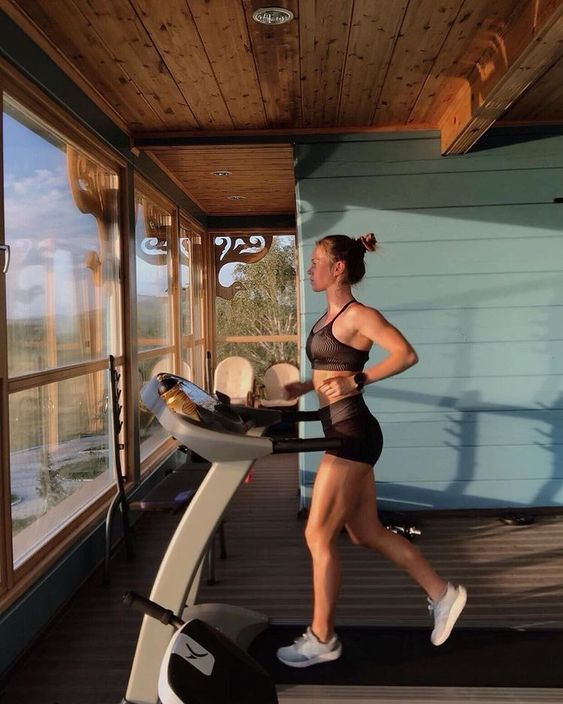The food we eat is like fuel. Just as gasoline in a vehicle converts into energy, the body also uses fuel to fuel its activities.
Fuel quality determines performance. If you fuel your vehicle with inferior fuel, it is impossible to expect top performance.
You can tell the type of fuel your body is receiving by examining how much macronutrient you consume.
By definition, macronutrients are substances that living organisms require in large quantities. The three main macronutrients in the human diet are carbohydrate, protein and fat. The macronutrients all provide energy but they each serve a specific purpose.
Protein provides four calories per gram. Amino acids are the building blocks of proteins. There are nine essential amino acids that our bodies can’t make on their own. They must be obtained through our diet. The building blocks for muscle mass are proteins.
Fats contain nine calories per milligram, the highest of all macronutrients. They are not “fat”. Fats provide energy, protect your organs and regulate hormone production, which is of particular interest for strength training.
Carbohydrates provide four calories per gram. Carbohydrates are broken down by the body into glucose which is easily used as energy or stored in fat and muscle stores.
My friend told me I should eat low-fat, high-carb diets to gain strength. Everyone seems to talk about low carb diets these days. What diet should I follow?
This answer is not one you’ll like. You’re not going to like this answer.
What I know depends on what you ask.
Some people can’t function without carbs. Some people, such as Dr. Dominic D’Agostino are able deadlift 500 lbs for 10 repetitions, after following a low/no carb diet and fasting for one week.
There is no way to know the reason certain diets are good for some and bad for others.
Experimenting is the only way you can find out which diet will be most effective for you. Test out the low-carbohydrate diet for one month to see what happens. You can try a zone diet where you consume the three macronutrients at equal volume or close to it, or even a high carb diet. It is important to take good notes, and keep the other variables (stress level, sleep pattern) constant.
You will not have any problems as long as your intake is sufficient (more about that later).
As we build strength, it is important to not only consume high-quality calories but also increase our quantities.
The body uses calories for the functions necessary to keep it alive, such as breathing, circulation of blood, control of body temperature and others. These functions all require energy, which comes in the form calories. It is called your basal metabolism rate.
Your body is put under a lot of stress by strength training. It must also devote calories to other functions, such as muscle repair and glycogen restoration, in addition to slinging weights several times a week.
You will not be able to gain strength if you don’t provide your body enough calories. It will instead continue to divert what little energy it does have to its basic functions. This leaves you feeling gassed and slowing down your lifting.
“Sounds great. What is the best way to determine how much food I should eat?
Choose any amount. A nice round number is 2000 calories. You should weigh yourself after you use the bathroom in the morning. Eat 2000 calories a day for one week. You should weigh yourself after a week.
Did you lose weight? Continue this exercise, but consume 2200 calories a day.
Repeat the process until you don’t gain weight or lose it.
You should consume this number of calories each day. Remember that you’ll need to change this number as your strength-training progresses.
You probably already know this, but just in case: when you are trying to build muscle mass, you must count your calories. Most people think that they consume a lot of calories, but in reality only consume 1800 to 2000. If you keep track of your food intake, you may be shocked at the amount you consume.
What to Eat
Macros – Amounts
Aim for 1 gram of protein per pound per day. If you are 170 pounds, then you should consume 170 grams of protein. You may require 1.5 x the amount of protein you need per pound per day to achieve optimal results.
The most important macronutrient for building muscle mass is protein.
The ratio of carbohydrates to fats is not important. What works best for you? Make sure to eat more calories than you use.
Macros – Food Sources
These are some good sources of each macronutrient. The majority of your food should be these foods.
protein: Chicken breasts, chicken legs, beef ground, tuna, salmon mackerel sardines, yogurt cottage cheese eggs.
Fats Steak, avocados, extra virgin olive oils, coconut oils, and butter.
Carbohydrates: Vegetables (kale, spinach, broccoli, romaine lettuce), fruits (blueberries, strawberries, oranges, bananas, pineapples, apples, beans/legumes/lentils (also decent in protein), sweet potatoes, potatoes, quinoa, rice, oats.
What to Eat and How often?
Let’s discuss meal timing now that you know what foods to eat.
You will need to increase your window of eating because you consume more calories.
If you can’t eat 1000 calories or more in a single meal, and then do it again within 3-4 hours, I wouldn’t suggest using an intermittent fasting method.
If you are not the one who is eating, then you will want to follow a diet that follows:
- Breakfast
- Snack #1
- Lunch
- Snack #2
- Dinner
It doesn’t really matter what time it is. It doesn’t matter what time of day you eat. It is important to consume enough calories for you to be able to rebuild your muscles in order to get ready to work out again.
Should I have a pre-workout meal?
Yes, for optimal performance. It is important to consume the right amount of carbs and protein in order to reduce muscle damage and increase muscle mass.
When should I have my meal before exercising?
I would recommend 2-3 hours prior to training.
Others prefer to eat an hour before or 30 minutes prior. It’s fine if you like it, but eating so close to a workout doesn’t leave much time for digestion. Your parasympathetic system will be activated, which is the function of “resting and digesting” that’s not optimal for athletes.
You can eat a liquid like a smoothie with protein if you want to. Keep it low-calorie – 200 calories maximum.
It is also important to note that eating so close to an exercise session will reduce the absorption of pre-workout , rendering it ineffective.
Ideal is to eat between 2-3 hours prior to training. Choose a moderately-high-protein, moderately-high-carbohydrate, and low-fat diet. Low-GI carbohydrates (fruits, vegetables, legumes/beans, and some grains) are better than high-GI ones (juices, sweets, potatoes, white rice, or candy). Consuming too much high-GI food will result in a spike of blood sugar just before you go to the gym.
This is a pre-workout sample meal that I will consume between 2-3 hours prior to training.
- Chicken breast 8 ounces (240 calories; 5g of fat, 0g carbohydrates, 44g of protein);
- 1 cup black beans (110 calories, 1g fat, 19g carbs, 7 g protein)
- 1 cup spinach (negligible)
- ? Cup walnuts (10g fat; 100 calories; 2g carbohydrates, 2.5g proteins);
- 1 cup blueberries
- Olive oil, 1/2 teaspoon
- Water
Calories: 702
Protein: 62g (35%)
Carbs: 61g (34%)
Fats: 24g (31%)
Do I have to drink or eat anything before and after my exercise?
Eat? No.
Well, maybe. Others claim that drinking a shake after exercising doesn’t reach the bloodstream fast enough. Others think that it does not matter. BCAAs are a big deal to some people.
A few anecdotes: I’ve had good results drinking protein shakes during my workout.
Don’t worry too much about it. You’ll do fine if you drink a lot, and eat a healthy amount of food each day.
Sports drinks are not necessary. You don’t require them unless your strength-training session lasts more than three hours.
How soon do I have to eat after a workout? “My friend said I only have 10 minutes to eat lots of carbs and protein or else I will lose my gains!”
It is not proven that “regular protein powder” or foods rich in protein, such as whole grains and hydrolyzed protein powders are better for post-workout than those with microfiltered protein.
You don’t need to eat a lot of liquid carbohydrates (also known as sugar) right after you exercise.
No, you don’t need to drink a lot of liquids after your exercise.
If you’re interested, it won’t harm to try it. If it’s not convenient or you like whole foods, then don’t worry.
Eating a meal of recovery within two hours after training is the most important thing.
You probably already know the answer to this question.
You know that I am. My blood sugar drops if I do not eat for 1-2 hours following a workout. I become irritable and useless.
Contrary to what is commonly believed, the addition of fats will not reduce the post-workout benefits from protein or carbohydrates. We’re aiming for the same balanced and nutrient dense plate as we did with our pre-workout.
This is a post-workout sample meal.
- 200g baked sweet potatoe (172 calories, 0g fat, 40g carbs, 3g protein)
- 10 oz sirloin steak (570 calories, 36g fat, 0g carbs, 58g protein)
- 1 cup broccoli (31 calories, 0g fat, 6g carbs, 3g protein)
- A glass of water (or a small amount of wine if, like me, you are feeling frisky at 8pm and want to indulge). One glass.
Calories: 773
Protein: 63g (33%)
Carbs: 46g (24%)
Fats: 36g (43%)
You can read more about it here:
You need to eat in order to grow stronger and gain weight. You may have eaten more than ever before.
This is not a race, but a marathon. You don’t want to go from eating only two meals per day, to having 4,000 calories every day in one day.
Start with your initial caloric requirements and then work upwards. Choose whole foods that are nutrient dense.
Don’t worry if you don’t eat within 5 minutes after leaving the gym.
Water is essential for your health.
Eat delicious food. Cooking is a great skill to learn. It is not worth living a life of bland food.
The FAQ
“I eat 60% carbohydrates/fats/water and I’m strong AF! “You are full of sh*t!”
Maybe. It’s impossible to write a tutorial that will please everyone. From experience, I’m confident that these macros will be useful for many people. Like I said, I support you to experiment until you discover what works best for you.
Does it really matter whether I have breakfast?
You shouldn’t, unless you have trouble getting enough calories.
Can I drink alcohol?
Alcohol can make you feel tired, dehydrated and unable to focus. It also slows down protein synthesis.
Don’t over-do it. Do not binge-drink the night before a training session, unless your results are mediocre. If you’re planning a heavy night out, it is best to train BEFORE going out.
The next steps.
Keep an eye out for our Ultimate Guide to the Supplementation of Strength Training and Ultimate Guide to the 6-Week Strength Training Routine.


